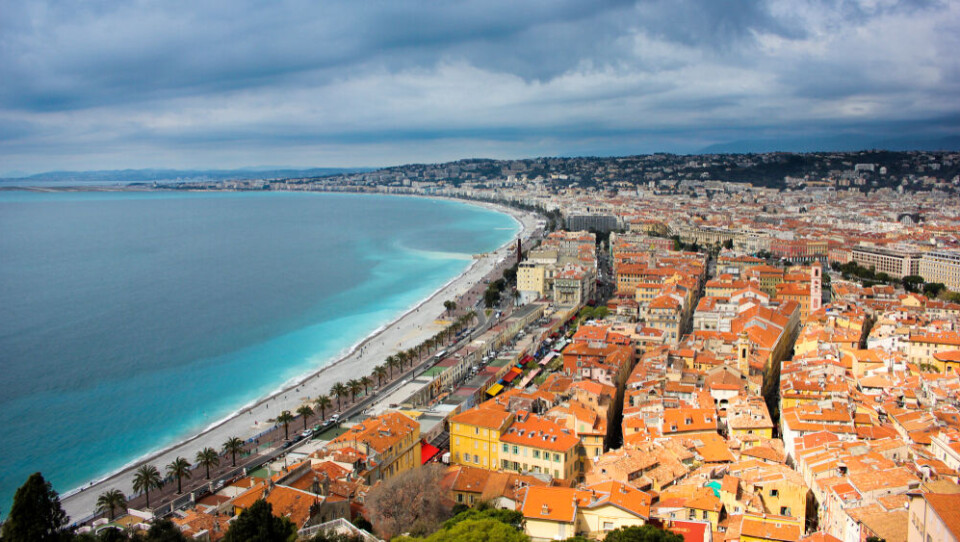-
Videos: violent storms wreak havoc across France
Flights were also diverted from major Paris airport due to heavy rain
-
Storms, then calm and warm days return: French weekly weather outlook May 12 - 16
Temperatures will reach around 2C higher than the national average for mid-May
-
Storms in south, sun in north: French weekend weather outlook May 10 - 11
Hail is expected in the south-west on Saturday
France’s Mediterranean coast at risk of tsunami within next 30 years
Coastal towns and cities such as Antibes and Cannes have already begun preparing for a potential tsunami

A Tsunami will almost definitely occur in the Mediterranean sea in the next 30 years, Unesco has reported in the lead up to a special Ocean Conference to be held in Lisbon from June 27 to July 1.
France’s Mediterranean coastline stretches from the French Riviera (Côte d’Azur) in the southeast to Perpignan near the Spanish border. There are many popular tourist cities and towns along the coast such as Nice, Antibes, Cannes and Marseille, attracting millions of visitors each year.
Audrey Azoulay, director-general of UNESCO, will unveil a strategy at the conference to ensure that all at-risk coastal communities are “Tsunami Ready” by 2030.
Unesco states that: “Statistics show that the probability of a tsunami wave exceeding one metre in the Mediterranean in the next 30 years is close to 100%.”
Pascal Roudil, head of France’s tsunami alert centre Cenalt, said that the whole of France’s Mediterranean coastline is at risk.
“Depending on the fault line, simulations show that we could have waves of up to three metres, at most,” he said.
He added that he expects any waves caused by a tsunami to be higher in areas around Perpignan than around Nice and Cannes. This is due to the seabed in the southeast of France being steeper, which tends to reduce the impact of waves.
Bernardo Aliaga, a tsunami expert at Unesco, said that even waves of 50cm can “cause enormous damage”.
“That would create a wall of water capable of lifting a car and carrying it for several dozen metres,” he told Libération.
Despite this, any Mediterranean tsunami would be less powerful than one in the Pacific Ocean due to variations in the subduction zones, areas where tectonic plates collide and one plate is pushed beneath another.
“We estimate that the maximum magnitude of earthquake in the western Mediterranean could happen north of Algeria and reach 7.5 on the Richter scale,” Mr Roudil told Franceinfo.
For comparison, the huge 2004 Indian Ocean tsunami that caused the deaths of at least 225,000 in 12 or so countries was caused by an undersea earthquake with a magnitude of 9.1.
Protection against tsunamis
France’s alert centre Cenalt was created in 2012 to prepare the country for potential tsunamis.
Mr Roudil said that with a proper alert system in place, beaches and coastlines could be evacuated quick enough to avoid casualties.
He said that analysis has shown that in the most extreme situations, people will need to get at least 200m in-land or five metres above sea level to be safe.
If a strong underwater earthquake off the coast of north Africa triggers a major tsunami, various seismology stations will be able to detect it within three minutes, Mr Roudil said.
“A message of alert can then be sent to emergency services within 15 minutes,” he said, adding that people in France would have around one hour to get to safety.
“It's reasonable but time should not be wasted,” he said.
Several French towns and cities have already begun preparing for potential tsunamis. In Cannes, for example, a digital information point was set up in February.
ℹ️ Une borne numérique d’information et d’alerte des populations face aux risques majeurs (dont #inondations ☔️ et #tsunami 🌊) a été installée à Cannes.
— Préfet de la région Provence-Alpes-Côte d'Azur (@Prefet13) February 22, 2022
Ce prototype est le premier du genre sur l’arc méditerranéen et sera testé pendant 3 ans. #MIIAM @villecannes pic.twitter.com/xKaI3FPnxR
Antibes has also been organising evacuation exercises, with the most recent one taking place on June 20.
La ville d’#Antibes participait aujourd’hui à un exercice préfectoral d’#Alerte Tsunami en présence de tous les acteurs mobilisés dans le dispositif #secours 👉 Police Nationale, Police Municipale, Pompiers, Police Portuaire, Protection Civile,SNSM @rivieraports 🌊⛑#prevention pic.twitter.com/DZ0XWcxZFJ
— marika roman (@MarikaRoman) June 20, 2022
French tsunamis in the past
Tsunamis have already hit France’s Mediterranean coast in the past.
For example, on February 23, 1887, an earthquake off the coast of Imperia, Italy, caused waves of one to two metres to hit the French coast.
Going further back, on October 16, 1979, a tsunami caused the deaths of 11 people in France and caused significant damage to the southeast coastline, notably to Antibes.
Mr Aliaga of Unesco said it is important to note where tsunamis have occured in the past as it is likely they will hit in the same place again.
Related stories
Map: The 101 French communes affected by coastal erosion
June 2022: a record-breaking month for weather in France
Climate change: Snow disappearing from Alps, France included
























